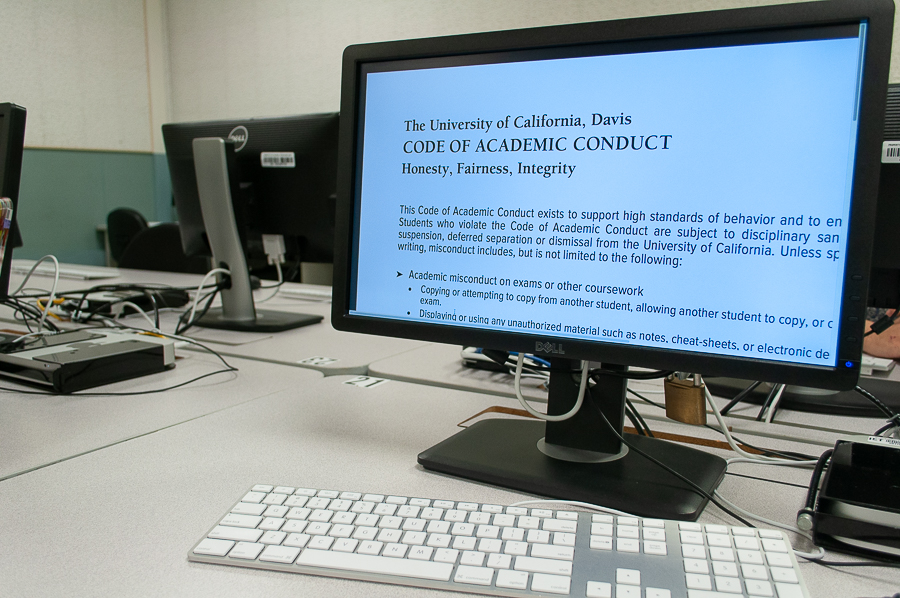
Department of Education found university had not sufficiently validated student attendance
Starting this quarter, all students were required to acknowledge the Code of Academic Conduct for each course they were registered in as part of the new Academic Participation program.
According to the UC Davis website, the purpose of the acknowledgement was to keep track of which students had begun coursework.
“In 2017 the US Department of Education determined that UC Davis had not done enough to validate that students actually attended their registered classes,” the website stated. “In order to comply with this ruling, a method of allowing students to confirm that they have started work on a course was developed in cooperation with the Academic Senate and other key University stakeholders.”
In addition, it was recognized that more could be done to ensure students were aware of their responsibilities regarding academic honesty and the Code of Academic Conduct. The current acknowledgement process was designed to help educate students in this area as well.
Starting the first day of instruction, students received emails prompting them to accept the code. A student could do so by logging into their myUCDavis account, reading the Code of Academic Conduct and checking the boxes next to each of their registered courses to verify their acceptance of the code.
Professors and instructors were also encouraged to help enforce the new program by reminding their students on the first day of class to confirm participation online, familiarizing themselves with faculty responsibilities for enforcing academic honesty as well as adding information about the new requirement into their course introduction materials or syllabus.
According to the email sent out to students, failure to participate could bring significant consequences including prevention from registering in the next term and lowering or complete removal of financial aid.
In addition, the email made it clear that failure to acknowledge the Code of Academic Conduct did not relieve students of their responsibility to know and follow the code.
Despite the program’s good intentions, some students, such as fourth-year international relations major Lily Jenkel, were not convinced that the acceptance process would achieve its desired effects.
“I think most students won’t actually read it, they’ll just click submit,” Jenkel said.
Some professors and instructors also had mixed feelings about the new program.
“I think it’s good that it reminds students to look at the rules,” said Dr. Pamela Demory, a lecturer in the University Writing Program. “But it also feels a little heavy-handed, because it implies that students are likely to break the rules.”
Written by Clara Zhao — campus@theaggie.org








